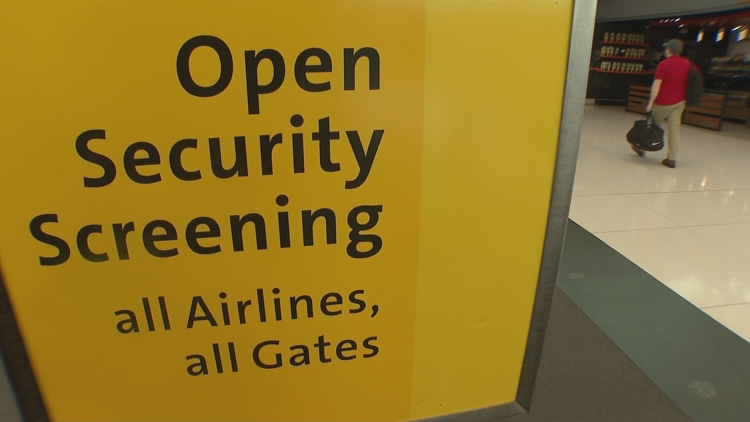Denver International Airport Leading the Way in Security Innovation
Denver International Airport (DEN) is positioning itself as a leader in airport security innovation, potentially setting the stage for a major shift in how passengers navigate security checkpoints. The Department of Homeland Security (DHS) is currently evaluating a significant change to existing policies that have been in place since 2006: the restriction on carrying liquids over 3.4 ounces in carry-on luggage. This rule was introduced after a thwarted terrorist plot involving liquid explosives, but recent advancements in technology may soon make it obsolete.
Jeff Price, a professor at MSU Denver and former assistant security director at DIA, suggests that DHS is considering removing the ban entirely. This move could be made possible by the development of advanced scanning technologies that offer more accurate and efficient ways to screen luggage.
New Scanning Technology Revolutionizes Security Checks
The core of this transformation lies in a new generation of machines that function similarly to medical-grade CT scanners. These devices allow Transportation Security Administration (TSA) agents to obtain a three-dimensional view of the contents of each bag. By using multiple X-ray scans within seconds, the system reconstructs these images into a detailed 3D model. This enables screeners to rotate, flip, and examine the contents from all angles.
Additionally, these machines are capable of detecting anomalies such as explosive materials and flagging them automatically. This level of detail significantly enhances the ability of TSA agents to identify potential threats without requiring passengers to remove their belongings for manual inspection.
DEN’s Investment in Advanced Security Infrastructure
Denver International Airport has already begun implementing this cutting-edge technology at its West Security checkpoint. Soon, even more of these advanced machines will be deployed at the airport’s upcoming East Security checkpoint, which is expected to open in the coming weeks. This new checkpoint will replace the current South checkpoint, which is scheduled to close permanently in the future.
With these upgrades in place, DEN is well-prepared to adapt quickly to any policy changes regarding liquid restrictions. This readiness could lead to faster security lines and a smoother experience for travelers.
Streamlining the Passenger Experience
Price emphasizes that making security less intrusive can also improve the efficiency of the screening process. “It’ll definitely speed up the process,” he said. “Because the less intrusive you make security, the faster the process that you’re trying to protect goes.”
This philosophy aligns with recent changes in airport security protocols. For example, the requirement for passengers to remove their shoes at TSA checkpoints was recently lifted nationwide. While DHS has not yet announced a timeline for changes to the liquid rules, airports like DEN are already investing in the infrastructure needed to support such a transition.
Potential Benefits for Travelers
If the ban on liquids over 3.4 ounces is lifted, passengers could enjoy a more convenient travel experience. They would no longer need to worry about leaving behind bottles of shampoo, lotions, or other liquids in their carry-on bags. This change could reduce the stress and confusion associated with airport security screenings, particularly during busy travel seasons.
As the federal government continues to evaluate the feasibility of lifting this restriction, airports that have invested in advanced scanning technology will be better positioned to implement these changes seamlessly. Denver International Airport’s proactive approach ensures that it remains at the forefront of airport security innovation, setting an example for other airports across the country.







